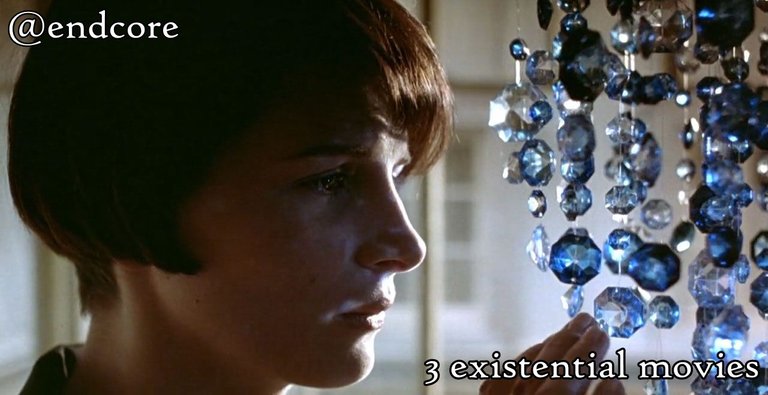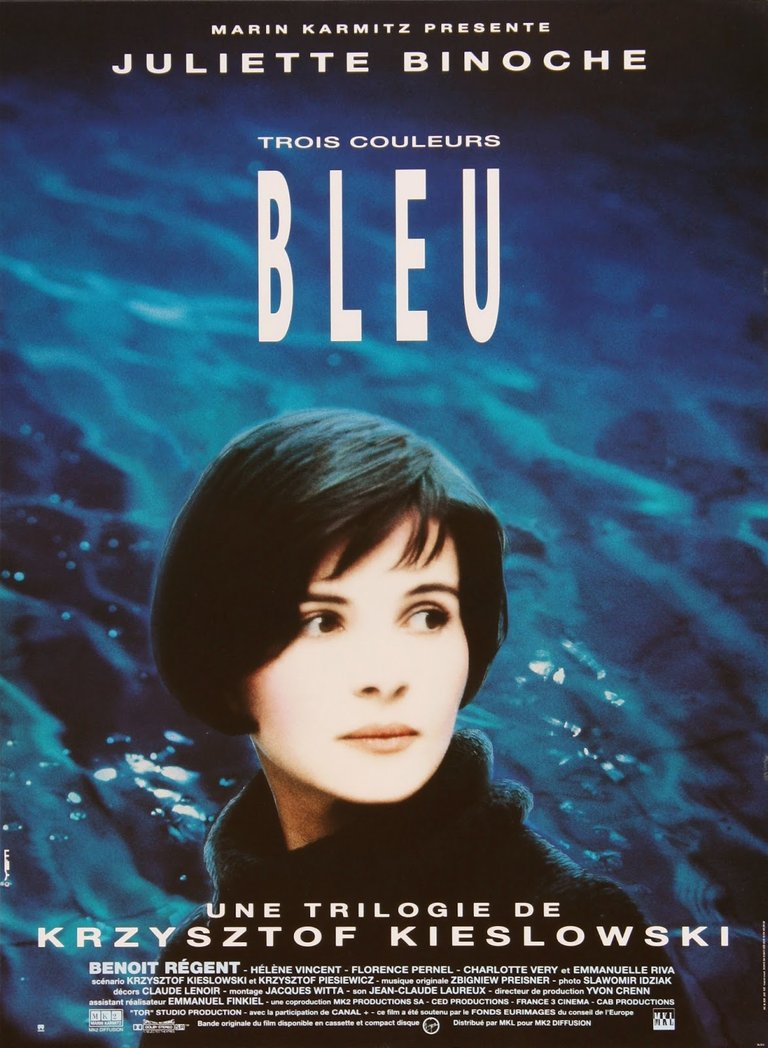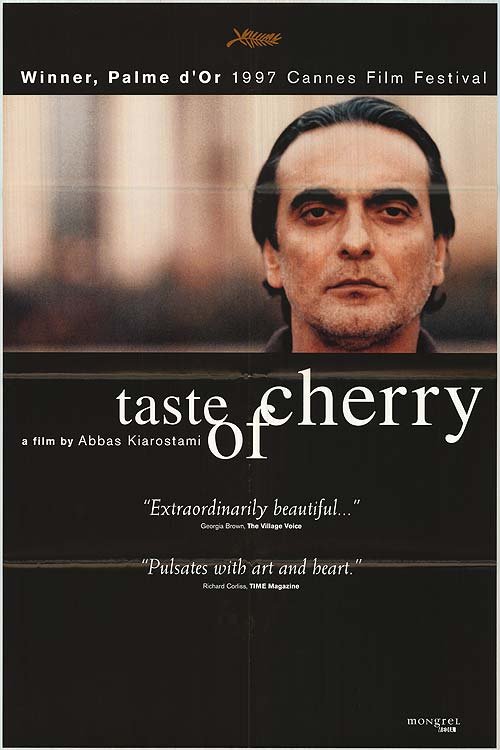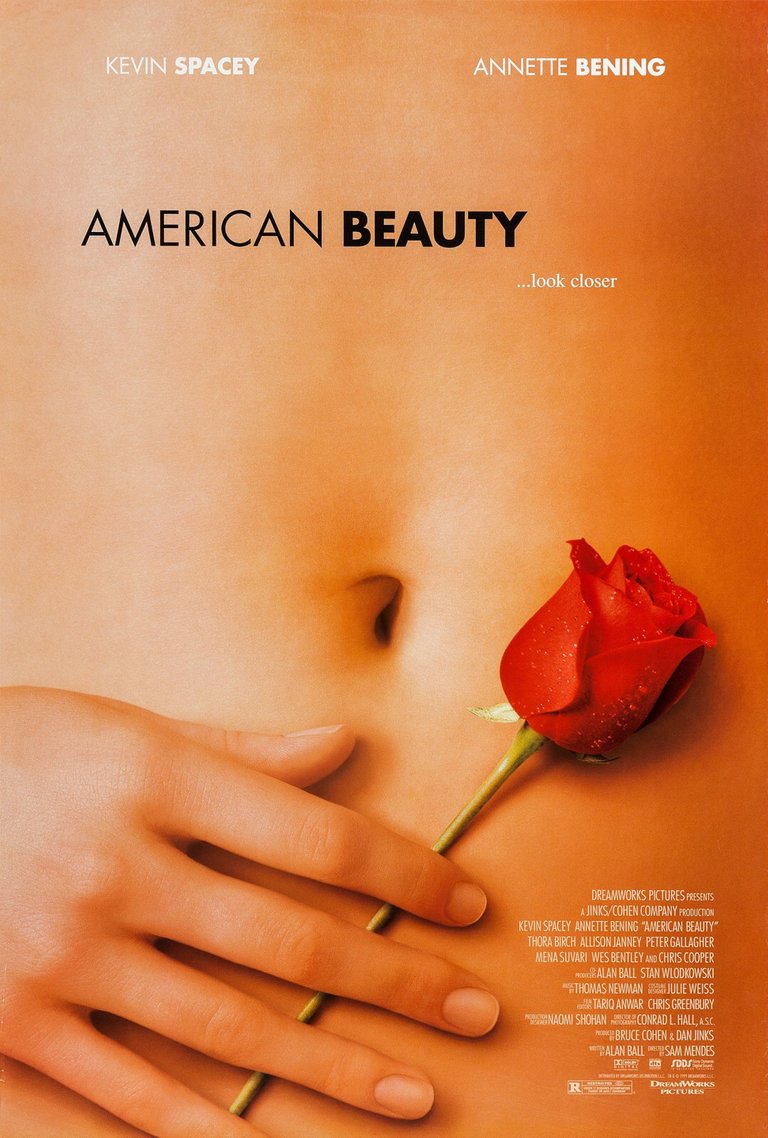
Los domingos generalmente son días de descanso. Muchos se toman el día entero para no hacer nada, algunos para rendir honor a su dios, sea como sea, generalmente el domingo está tenido como un día lento y tranquilo. Yo soy una persona a la cual, la quietud, dirige casi de inmediato a la reflexión, por lo que para mí los domingos suelen ser el punto de reflexión de la semana. En pocas palabras, hoy me encuentro pensativo y eso me ha hecho pensar en algunas películas que han sembrado en mí la necesidad de ver mi vida y la existencia desde distintas perspectivas. Hoy quiero presentarles tres de esas películas.
Sundays are generally days of rest. Many take the whole day to do nothing, some to honor their god, however Sunday is generally considered a slow and quiet day. I am a person to whom quietness leads almost immediately to reflection, so for me Sundays are usually the reflection point of the week. In short, today I find myself thoughtful and that has made me think of some movies that have planted in me the need to see my life and existence from different perspectives. Today I want to introduce you to three of those films.

Trois Couleurs: Bleu (1993)
La primera película de esta lista ya comienza muy fuerte en su sentido existencial. Tenida como una de las películas francesas más importantes de la historia y también por muchos como una de las mejores películas jamás hechas, "Trois couleurs: Bleu", es la primera entrega de una trilogía dirigida por Krzysztof Kieslowski basada en los ideales revolucionarios franceses (libertad, igualdad, fraternidad). Esta trilogía explora los ideales franceses haciendo uso también del estudio psicológico mediante la estética en colores. Dicha estética cambia en cada película de la trilogía y cada una se centra en un color de la bandera de francia. Siendo "Bleu" la primera, esta película tiene un profundo enfoque en el color azul.
Si hablamos de la historia, la protagonista, Julie, es una mujer que acaba de perder a su marido, un popular compositor y a su hija en un accidente automovilístico, por lo que intenta suicidarse, pero fracasa en esto y decide refugiarse en una vida de anonimato en las calles parisinas, tras intentar eliminar todo lo relacionado a su vida pasada. La película explora la búsqueda de la libertad mediante los esfuerzos de Julie de conseguir una nueva vida y empezar de nuevo. El color azul es constantemente utilizado como una representación de la melancolía y hay mucho simbolismo también acerca de como Julie no logra escapar del sentimiento de pérdida.
The first film on this list already starts off very strong in its existential sense. Regarded as one of the most important French films in history and also by many as one of the best films ever made, "Trois couleurs: Bleu" is the first installment of a trilogy directed by Krzysztof Kieslowski based on French revolutionary ideals (liberty, equality, fraternity). This trilogy explores French ideals while also making use of psychological study through color aesthetics. These aesthetics change in each film of the trilogy and each film focuses on a color of the French flag. Bleu" being the first one, this film has a deep focus on the color blue.
If we talk about the story, the main character, Julie, is a woman who has just lost her husband, a popular composer and her daughter in a car accident, so she tries to commit suicide, but fails in this and decides to take refuge in a life of anonymity in the Parisian streets, after trying to eliminate everything related to her past life. The film explores the search for freedom through Julie's efforts to get a new life and start over. The color blue is constantly used as a representation of melancholy and there is a lot of symbolism also about how Julie fails to escape the feeling of loss.
La cinematografía y banda sonora también aportan bastante al simbolismo de esta, el color azul no solo está presente en el color general de la atmósfera, también lo está en colores de objetos más o menos importantes para la trama, e incluso, la banda sonora también es un recordatorio constante de la pérdida del esposo de Julie. En general, todo lo que gira en torno a esta película se enfoca en el estudio psicológico de su protagonista y de un estudio profundo sobre la búsqueda de la libertad, usando como medio el luto y la melancolía.
The cinematography and soundtrack also contribute a lot to the symbolism of this film, the color blue is not only present in the general color of the atmosphere, it is also present in the colors of objects more or less important to the plot, and even the soundtrack is also a constant reminder of the loss of Julie's husband. In general, everything that revolves around this film focuses on the psychological study of its protagonist and a deep study of the search for freedom, using mourning and melancholy as a medium.

Taste of Cherry (1997)
De Francia, viajamos a Irán. Taste of Cherry es quizás, la obra maestra del director Abbas Kiarostami, un reconocidísimo actor en este mundo del cine más reflexivo y lento. La película fue estrenada en 1997 y presenta un enfoque existencial basado en la muerte y en los motivos para seguir viviendo. Explora este tema a través del diálogo y de la naturaleza serena que presenta la muerte en este retrato. No es una película para cualquiera, personalmente, me costó verla, es bastante lenta y pacífica y por ello algunos podrían tacharla de "aburrida". Pero personalmente, la considero una película hermosísima y que realmente te va a dejar en el mismo conflicto que el protagonista.
Ahora, ¿de qué va la historia? La película nos muestra a nuestro protagonista, encarnado por Homayon Ershadi, un hombre que se monta en su coche y comienza a recorrer las afueras de Teherán, en constante reflexión, buscando a un candidato para una misteriosa tarea a cambio de una recompensa monetaria bastante generosa. El protagonista desea suicidarse, y su búsqueda es para conseguir a alguien que lo entierre, en una tumba que él mismo ya cavó. La película se desarrolla en el conflicto personal del protagonista y de como los rechazos de los posibles candidatos para esta tarea, afectan la visión que el protagonista pueda tener sobre su deseada muerte.
From France, we travel to Iran. Taste of Cherry is perhaps the masterpiece of director Abbas Kiarostami, a highly recognized actor in the world of slower, more reflective cinema. The film was released in 1997 and presents an existential approach based on death and the reasons to go on living. It explores this theme through dialogue and the serene nature that death presents in this portrait. It is not a film for everyone, personally, I had a hard time watching it, it is quite slow and pacey and therefore some might label it as "boring". But personally, I consider it a beautiful film and one that will really leave you in the same conflict as the protagonist.
Now, what is the story about? The film shows us our protagonist, played by Homayoun Ershadi, a man who gets into his car and starts driving around the outskirts of Tehran, in constant reflection, looking for a candidate for a mysterious task in exchange for a rather generous monetary reward. The protagonist wishes to commit suicide, and his quest is to get someone to bury him, in a grave that he himself has already dug. The film develops in the personal conflict of the protagonist and how the rejections of the possible candidates for this task, affect the vision that the protagonist may have about his desired death.
En su apagado color marrón, con el color de la tierra en la que el protagonista desea ser sepultado. Esta fúnebre pero pacífica película es un estudio profundo y nada melodramático acerca de reflexionar profundamente acerca del motivo por el que nos levantamos de nuestras camas día a día.
In its muted brown color, with the color of the earth in which the protagonist wishes to be buried. This funereal but peaceful film is a profound and not at all melodramatic study of reflecting deeply on why we get out of our beds day by day.

American Beauty (1999)
Es un poco difícil para mí hablar de esta película en un post como este, ya que yo podría dedicarle varios a solo esta película. Probablemente mi película favorita de todos los tiempos. American Beauty, estrenada en 1999 y dirigida por Sam Mendes. Hay muchísimo que se puede decir sobre esta gran película, la cual es por lejos la más popular y digerible de esta lista, una de las cosas más relevantes es que esta película fue ganadora del Oscar en su momento, en la categoría de "Mejor Película". Está protagonizada por Kevin Spacey y otros actores de renombre. Tiene una de las bandas sonoras más magnéticas y misteriosas que jamás he escuchado, compuesta por el talentosísimo Thomas Newman.
American Beauty explora la vida de diversos personajes, pero nuestro protagonista es Lester Burnham, un hombre de familia que se siente un fracasado. Pasa sus días sintiéndose "sedado", con una mujer que no le demuestra afecto y ya no le interesa sexualmente, con una hija rebelde con la que le cuesta mucho conectar y un trabajo que lo consume lentamente. Esta película explora la vida de toda esta familia y de algunos más, como el nuevo vecino de la familia o la mejor amiga de la hija de Lester. La trama comienza a tomar camino cuando Lester conoce a la mejor amiga de su hija Jane, la cual encuentra especialmente sensual, y en un cuestionable arranque de lujuria, Lester decide hacer todo lo posible para llevarse a esa chica a la cama. Mientras tanto, Jane comienza a mantener un romance con su vecino, Ricky, un chico extraño que le gusta grabar cosas e intenta huir de la mano de su padre, un ex-veterano homofóbico. Por otro lado, la esposa de Lester se embarca en una competencia contra su rival en su trabajo de bienes raíces.
It's kind of hard for me to talk about this movie in a post like this, as I could dedicate several to just this movie. Probably my favorite movie of all time. American Beauty, released in 1999 and directed by Sam Mendes. There is so much that can be said about this great movie, which is by far the most popular and digestible on this list, one of the most relevant things is that this movie was an Oscar winner at the time, in the "Best Picture" category. It stars Kevin Spacey and other renowned actors. It has one of the most magnetic and mysterious soundtracks I have ever heard, composed by the very talented Thomas Newman.
American Beauty explores the lives of various characters, but our protagonist is Lester Burnham, a family man who feels like a failure. He spends his days feeling "sedated," with a wife who shows him no affection and is no longer sexually interested, a rebellious daughter he has a hard time connecting with, and a job that slowly consumes him. This film explores the lives of this entire family and a few others, such as the family's new neighbor and Lester's daughter's best friend. The plot begins to take off when Lester meets his daughter's best friend Jane, whom he finds especially sensual, and in a questionable burst of lust, Lester decides to do everything he can to take this girl to bed. Meanwhile, Jane begins having an affair with her neighbor, Ricky, a strange boy who likes to tape things and tries to run away from the hand of his father, a homophobic ex-veteran. On the other hand, Lester's wife embarks on a competition against her rival in her real estate job.
American Beauty funciona enormemente como una película existencialista por varias razones. Para empezar, American Beauty es una película que busca subvertir el sueño americano mediante sus personajes. Todos son personajes que intentan entrar dentro de un estereotipo o que pretenden ser de una forma que realmente no son. Todos tienen alguna meta o propósito que ellos creen que quieren y todos ocultan muchas dimensiones de sus seres. Esta película te invita constantemente a cuestionarte tu identidad y a ser auténtico contigo mismo y con los que te rodean. Decir por qué los personajes son fachadas, sería contar la película, por ello, los invito a que la vean y descubran como, tras ver la escena final, van a repasar demasiadas veces sus vidas y sus propósitos en ellas.
American Beauty works enormously as an existentialist film for several reasons. For starters, American Beauty is a film that seeks to subvert the American dream through its characters. They are all characters trying to fit into a stereotype or pretending to be in a way that they really are not. They all have some goal or purpose that they believe they want and they all hide many dimensions of their beings. This film constantly invites you to question your identity and be authentic to yourself and those around you. To say why the characters are facades would be telling the movie, so I invite you to watch it and discover how, after watching the final scene, you will revisit your life and your purpose in it too many times.
Gracias por leer | Thanks for reading
Una vez más, estoy infinitamente agradecido si has llegado hasta acá. Gracias por leerme y gracias por compartir conmigo en este post, espero quie haya sido de tu agrado y que estas películas sean de tu interés o que te gusten. Un saludo y nos vemos en la próxima.
Once again, I am infinitely grateful if you have made it this far. Thank you for reading me and thank you for sharing with me in this post, I hope you enjoyed it and that these movies are of your interest or that you like them. Best regards and see you in the next one.
- Esta publicación fue mayormente traducida usando DeepL | This post was mostly translated using DeepL
- Todos los posters de las películas de esta publicación fueron extraídos de la base de datos de RateYourMusic | All the movie posters from this post were extracted from RateYourMusic's database.